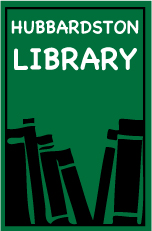- In 1776, John Adams declared, "The second day of July, 1776, will be the most memorable epocha in the history of America. I am apt to believe that it will be celebrated by succeeding generations as the great anniversary festival. It ought to be commemorated as the day of deliverance, by solemn acts of devotion to God Almighty. It ought to be solemnized with pomp and parade, with shows, games, sports, guns, bells, bonfires, and illuminations, from one end of this continent to the other, from this time forward forevermore."[3]
- In 1777, thirteen guns were fired, once at morning and again as evening fell, on July 4 in Bristol, Rhode Island. Philadelphia celebrated the first anniversary in a manner a modern American would find quite familiar: an official dinner for the Continental Congress, toasts, 13-gun salutes, speeches, prayers, music, parades, troop reviews, and fireworks. Ships were decked with red, white, and blue bunting.
- In 1778, General George Washington marked July 4 with a double ration of rum for his soldiers and an artillery salute. Across the Atlantic Ocean, ambassadors John Adams and Benjamin Franklin held a dinner for their fellow Americans in Paris, France.
- In 1779, July 4 fell on a Sunday. The holiday was celebrated on Monday, July 5.
- In 1781, the Massachusetts General Court became the first state legislature to recognize July 4 as a state celebration.
- In 1783, Moravians in Salem, North Carolina, held the first celebration of July 4 in the country with a challenging music program assembled by Johann Friedrich Peter. This work was titled "The Psalm of Joy".
- In 1791 was the first recorded use of the name "Independence Day".
- In 1870, the U.S. Congress made Independence Day an unpaid holiday for federal employees.[4]
- In 1941, Congress changed Independence Day to a paid federal holiday. The residents of Vicksburg, Mississippi, celebrated Independence Day for the first time since July 4, 1863, when the Siege of Vicksburg ended with a Union victory during the American Civil War.

